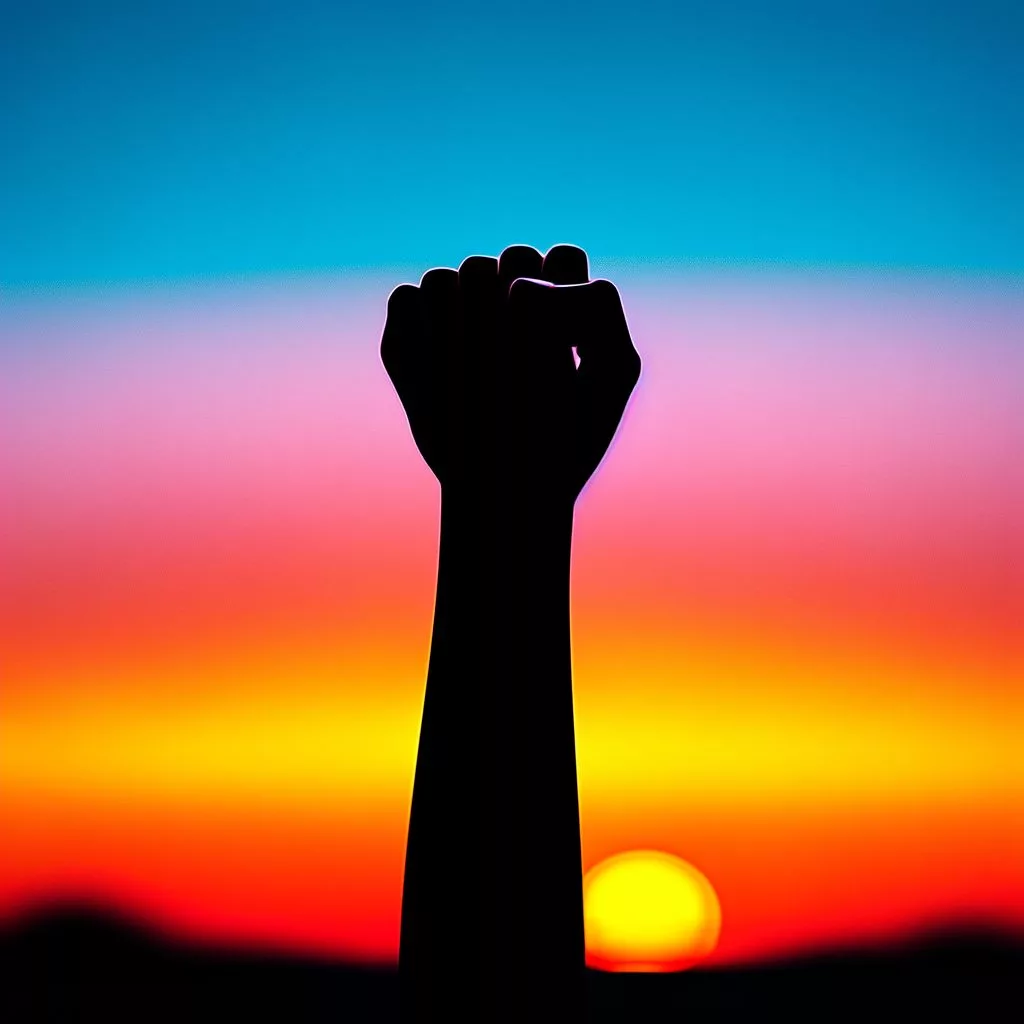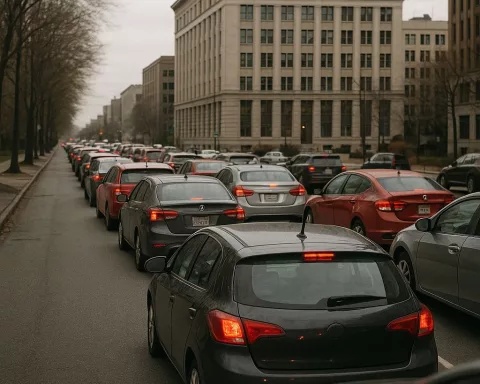On Human Rights Day in Cape Town, pro-Palestinian activist Uzair Mohamed was arrested during a peaceful protest, sparking outrage and concern about his rights and political freedom. His detention, which sparked protests from groups like the Muslim Judicial Council and South African Jews for a Free Palestine, raised questions about the treatment of activists in South Africa. While police claimed he was arrested for carrying flares, many saw this as an attempt to silence important voices. Mohamed’s experience serves as a powerful reminder of the ongoing fight for justice and the need to protect human rights for everyone.
What Happened During the Human Rights Day Incident in Cape Town?
On Human Rights Day, pro-Palestinian activist Uzair Mohamed was arrested during a peaceful protest in Cape Town. His detention raised concerns about constitutional rights and the suppression of political activism, prompting condemnation from groups like the Muslim Judicial Council and South African Jews for a Free Palestine.
Arrest of Uzair Mohamed: A Controversial Moment
In the dynamic city of Cape Town, renowned for its history of struggle and progress toward equality, a disconcerting event on Human Rights Day spotlighted the tension between activism and law enforcement. Uzair Mohamed, a leading pro-Palestine advocate and head of Cape Town Intifada, was arrested, triggering widespread condemnation from groups like the Muslim Judicial Council (MJC) and South African Jews for a Free Palestine (SAJFP). This incident not only highlights the ongoing complexities in political activism but also raises serious questions about the state of constitutional rights in South Africa.
Uzair Mohamed, a fervent supporter of liberation for oppressed regions including Palestine, Congo, Sudan, and the Cape Flats, became embroiled in a heated legal and moral dispute. On a day meant to honor the Sharpeville Massacre and celebrate human rights in South Africa, Mohamed’s peaceful protest took an unexpected turn. Reports from Cape {town} Etc indicate that police detained Mohamed, allegedly intensifying efforts to suppress pro-Palestinian activism in Cape Town.
“The arrest of our long-time comrade Uzair Mohamed without charge on March 28 marks a troubling escalation in suppressive tactics,” declared the SAJFP in a public statement. The group strongly opposed the reasons for his arrest, criticizing authorities for targeting Mohamed under the guise of “wearing a mask.” They pointed out the inconsistency of such enforcement, noting that masked and armed CSO officers had harassed peaceful protestors at a Zionist conference without police intervention.
Legal Justifications and Constitutional Concerns
Captain FC van Wyk, a police spokesperson, explained that Mohamed’s arrest occurred because he carried two flares during the demonstration. “National Public Order Police members detained the suspect in front of Parliament, and he was held at Cape Town Central SAPS. A case for possession of a dangerous weapon was opened,” van Wyk stated. This official perspective, however, did little to ease the growing concerns about the infringement of political freedoms.
The MJC, an influential religious organization, echoed the SAJFP’s sentiment, stating that Mohamed’s detention violated his constitutional rights. “His detention during a peaceful demonstration on March 28 constitutes an infringement on his constitutional rights and represents a broader attempt to suppress legitimate political activism,” the MJC affirmed. They highlighted the personal toll of the incident on Mohamed, describing it as deeply traumatic and unjust.
Although Mohamed was released without bail and the charges were eventually dropped, his supporters remained resolute. The SAJFP insisted that his detention violated his constitutional right to protest and freedom of expression. They called for a thorough investigation into what they termed an abuse of state power. “Our constitution stands for human dignity, equality, and the advancement of human rights and freedoms. By defending our right to protest for those suffering in Gaza, we also safeguard our own freedoms,” the SAJFP asserted.
Broader Implications and Calls for Accountability
This incident goes beyond Uzair Mohamed’s personal ordeal, touching on broader issues concerning the treatment of pro-Palestinian activists in South Africa. Both the MJC and SAJFP pointed to systematic intimidation, physical assaults, and targeted harassment from Zionist supporters. If substantiated, these allegations suggest a concerning pattern of suppression that demands immediate attention. The MJC urged the City of Cape Town to conduct a transparent inquiry into these violations and take decisive action to uphold constitutional rights regardless of political views.
Cape Town, a city with a rich history of social justice and political activism, now faces the complexities of modern-day advocacy. The historical significance of Human Rights Day, juxtaposed against the backdrop of Mohamed’s arrest, serves as a stark reminder of the ongoing struggle for genuine freedom and equality. The activism of Uzair Mohamed and the responses from influential bodies such as the MJC and SAJFP highlight a critical narrative in the ongoing discourse on human rights.
The legacy of apartheid and the spirit of resistance that fueled South Africa’s liberation continue to influence contemporary activism. Figures like Mohamed embody this spirit, challenging authorities and pushing the boundaries of accepted norms to fight for global justice. However, his experience also reveals the fragility of hard-won freedoms and the continuous need to defend them against encroachments.
Reflecting on Activism and Authority
Artistically, parallels can be drawn between Mohamed’s activism and historical protest art movements that have shaped public consciousness. Just as Dadaists in the early 20th century used absurdity to critique the establishment, modern activists employ peaceful demonstrations and symbolic acts to challenge prevailing injustices. The arrest of Mohamed, therefore, is not merely a legal matter but a cultural and ideological battleground, reflecting the perennial struggle between authority and dissent.
In summary, the incident involving Uzair Mohamed on Human Rights Day in Cape Town exemplifies the broader challenges facing political activists worldwide. It underscores the delicate balance between maintaining public order and respecting individual rights. The responses from the MJC and SAJFP demonstrate a collective resolve to protect constitutional freedoms and ensure the enduring spirit of human rights remains vibrant and unyielding. As Cape Town navigates these complexities, the city’s legacy of resilience and activism continues to inspire those who dare to speak truth to power.
FAQ: Human Rights Day Incident in Cape Town
What happened during the Human Rights Day incident in Cape Town?
On Human Rights Day, pro-Palestinian activist Uzair Mohamed was arrested during a peaceful protest in Cape Town. His detention raised significant concerns regarding constitutional rights and the suppression of political activism. This event led to widespread condemnation from various groups, including the Muslim Judicial Council (MJC) and South African Jews for a Free Palestine (SAJFP).
Why was Uzair Mohamed arrested?
Uzair Mohamed was arrested by police who claimed he was carrying flares during the demonstration. The police categorized the possession of these flares as a violation that warranted his detention. However, many observers viewed this arrest as part of a broader attempt to silence political advocacy related to Palestine.
What are the implications of this incident for political activism in South Africa?
The incident underscores serious concerns regarding the treatment of activists in South Africa. It raises questions about the protection of constitutional rights and the potential for state suppression of political dissent. The responses from groups like the MJC and SAJFP emphasize the need for accountability and protection of individual rights, particularly for those advocating for marginalized communities.
What was the reaction from activist groups following Mohamed’s arrest?
In the wake of Uzair Mohamed’s arrest, both the MJC and SAJFP condemned the detention as an infringement on constitutional rights. They highlighted concerns over the treatment of pro-Palestinian activists and called for a thorough investigation into what they described as an abuse of state power. They advocate for protecting the right to protest and freedom of expression as essential components of democracy.
Were the charges against Uzair Mohamed upheld?
No, the charges against Uzair Mohamed were eventually dropped, and he was released without bail. Despite this outcome, his supporters, including the SAJFP, continue to assert that his initial detention violated his constitutional rights and represents a troubling pattern of suppression of political activism in South Africa.
How does this incident relate to the broader struggle for human rights?
The arrest of Uzair Mohamed on Human Rights Day serves as a poignant reminder of the ongoing struggle for justice and the need to uphold human rights for everyone. It highlights the delicate balance between maintaining public order and respecting individual freedoms, as well as the historical context of activism in South Africa. This incident resonates with the legacy of resistance against apartheid, emphasizing the importance of defending hard-won freedoms against contemporary threats.











